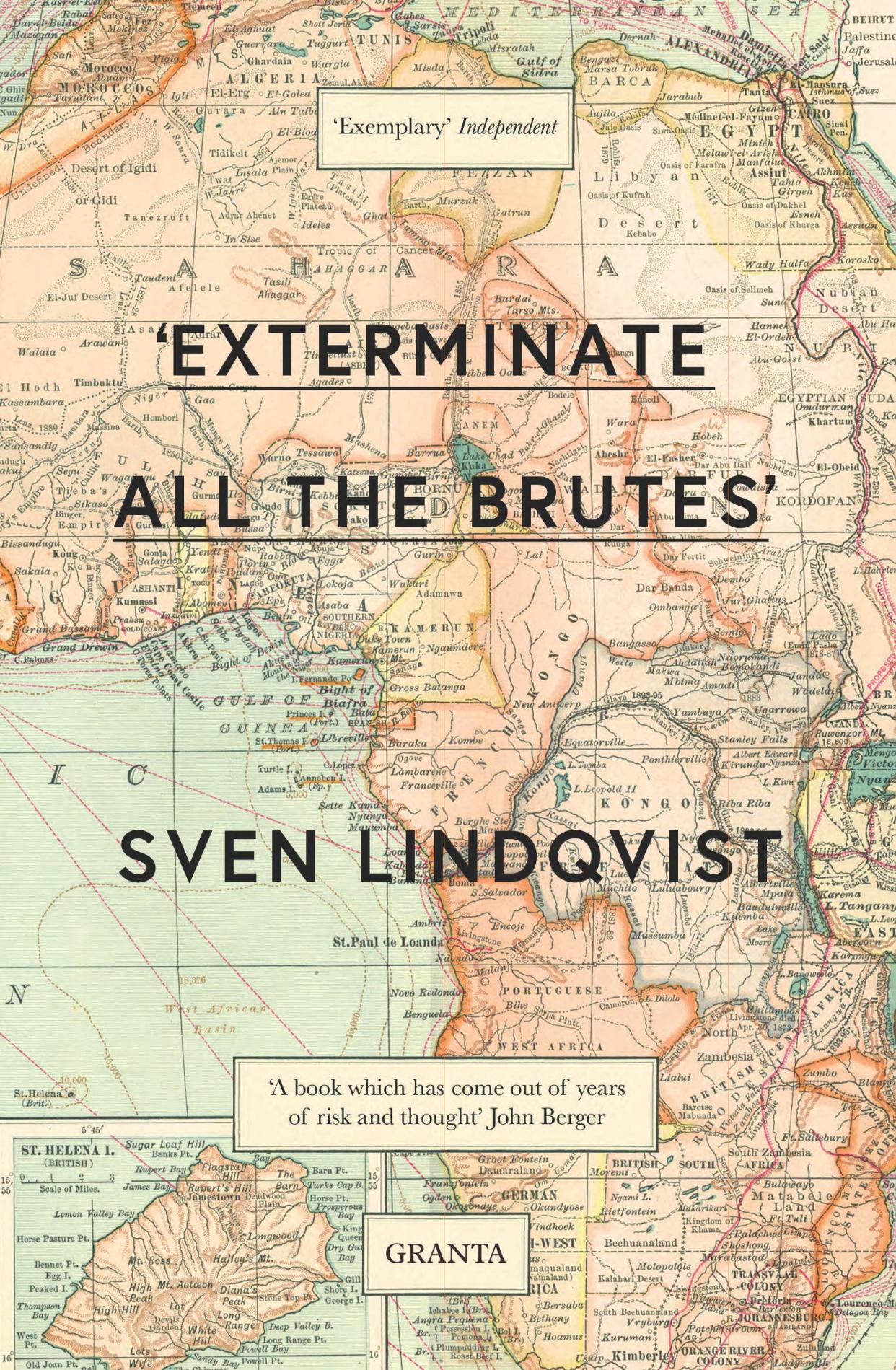Lindquist's history illustrates the quest for expansion is blood-soaked and blatant

With the start of the new school year nearly upon us, there are certain to be more stories about objections to the curriculum. And if the recent past is prologue, these objections will be as often as not connected to worries over what history is covered in classrooms.
So many of the made-up indignities of the last couple years put me in mind of Sven Lindquist’s “Exterminate All The Brutes.” Lindquist’s book, the basis for a recent film project by director Raul Peck by the same name, finds threads, impossible to ignore, that stitch together the calamitous manner in which Enlightenment and colonialism combined to erase the history of entire populations across the globe. A history we ignore willfully, but not one we should ignore willingly.
Lindquist, author of more than 30 books including “A History of Bombing” and “Saharan Journey,” died in 2019, but his 1992 book, its title taken from a line in Joseph Conrad’s “Heart of Darkness,” ought to be required reading for anyone claiming the study of history is uncomfortable. Lindquist’s premise is that such history is uncomfortable because it is inexcusable.
A postscript added to Mr. Kurtz’s report to the International Society for the Suppression of Savage Custom, Conrad’s line has long generated controversy since the book’s 1902 publication. Lundquist believes, connecting Conrad’s experiences in Congo and elsewhere with developments across Europe in the middle and late part of the 19th century, the words illustrate how colonial powers carved up the spoils of rubber, rubies, and other resources without regard to who was displaced or murdered in the process.
Traveling to once colonial outposts such as Sudan and Congo, Lindquist links the 19th century devotion to science and industry–whether Darwin or Dunlop–led colonial powers like Britain and France–and later Germany– to regard the extermination of the “savage” races as an integral part of natural selection. Of course “savages”are human, but progress could not be slowed by anything as mundane as empathy. That the voices of hate use the same language today should give us more cause for concern.
Part historian and part social critic, Lindquist links technological developments, particularly the steamships and munitions, to colonial expansion. “In the middle of the nineteenth century, steamers started carrying European cannons deep into the interior of Asia and Africa,” he writes. “With that a new epoch in the history of imperialism was introduced.”
This epoch gained greater footing too as Europeans devised more and deadlier weapons. He suggests a turning point was the Battle of Omdurman in 1898, when British troops unleashed the full brunt of such weaponry, including “gunboats, automatic weapons, repeater rifles, and dum-dum bullets–against a numerically superior and very determined enemy” of Sudanese. Commemorated by Churchill and Kipling, the slaughter at Omdurman advanced what Linquist says Europeans viewed as an “ethical imperative” to express their “divine power.”
“Exterminate All The Brutes” is at once a comprehensive listing of the atrocities perpetrated against the world’s most vulnerable people from the days of exploration through the present, as well as a call to action.
Lindquist knows that this is nothing new and that it will make readers uncomfortable. He points out how long we have collectively ignored these links. As others have said also, “It is not knowledge we lack. What is missing is the courage to understand what we know and draw conclusions.”
Let the squeamish complain about the curriculum. The rest of us need to read Sven Lindquist and draw the necessary conclusions.
Good reading.
This article originally appeared on The Petoskey News-Review: Lindquist's history illustrates the quest for expansion is blood-soaked and blatant

